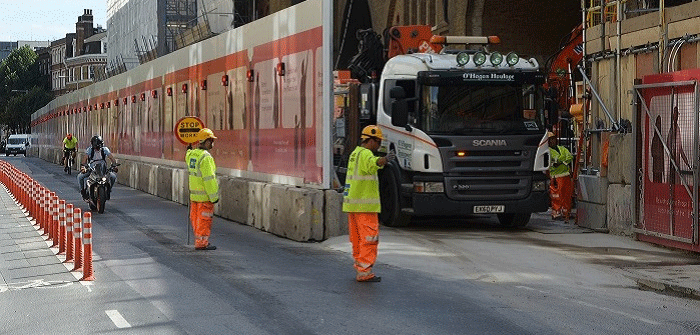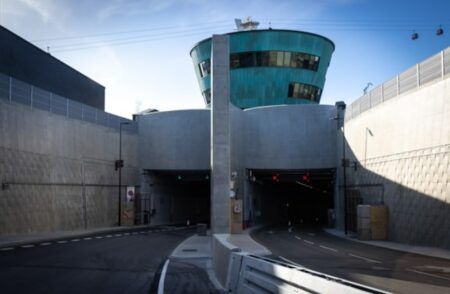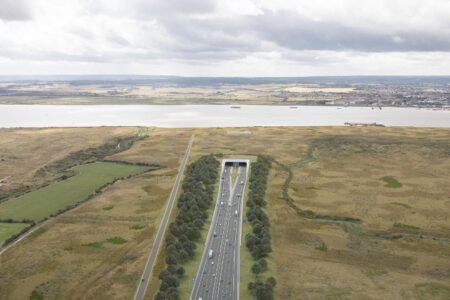Transport for London (TfL) has revealed how money raised from utility companies for digging up the UK capital’s roads is funding innovative solutions to tackle traffic congestion and minimize the impact of roadworks, saving £100m (US$129m) in lost travel time.
TfL has invested £6.1m (US$7.8m) in London’s road network in the past year using funding raised through its pioneering Lane Rental scheme. This includes £350,000 (US$451,600) awarded to the agency’s RoadLab innovation challenge program that aims to develop products that make roadworks safer, smarter and more inclusive for people’s travel needs.
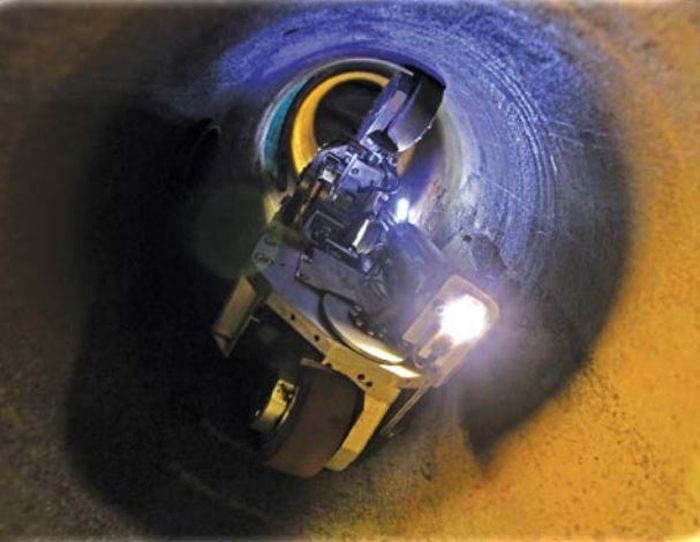
Run in partnership with the Plexal innovation center based in Olympic Park, concepts selected for the funding and development program include a smart roadwork barrier that can detect when it has been moved, and the use of artificial intelligence (AI) to scan social media and gain real-time insights into potential disruption on the road network.
Funding from the Lane Rental scheme, which charges utility companies for carrying out roadworks on TfL’s busiest roads, has also been used to develop CISBOT, a robot capable of fixing joints in large cast iron gas pipes. The robot can work in a live gas main without disrupting the gas supply to nearby properties and significantly reduces the amount of road closures required. The robot is set to be used in upcoming gas work at Clapham Common North Side, where it could help to save up to 33 weeks of disruption on local roads.
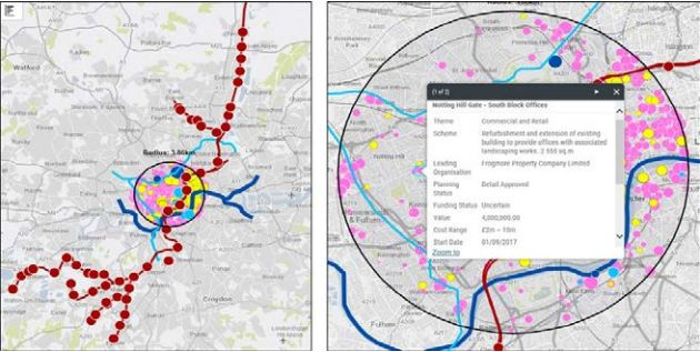
Other projects which have been awarded Lane Rental funding include:
- Updates to traffic signals to reduce congestion, with trials of new sensors that will track people walking and cycling at crossings, and re-time signals to give them priority;
- Improved mapping of the capital’s roads, which will help to reduce the possibility of larger vehicles using unsuitable routes and causing disruption; and
- New fire suppression equipment for utilities tunnels in Camden.
 Since the Lane Rental program was introduced in 2012, there has been a 65% increase in companies working at the same site, at the same time, and a 30% rise in planned utility works at night. Almost 73 schemes, such as mapping below-ground utility services, robotic technology and training to promote efficiency in on-site working practices, have already received a share of £19m (US$24.5m) in Lane Rental funding allocated to date. Unlike the rest of the UK, 99.6% of London’s road network receives no sustained central government funding for maintenance, with just those managed by Highways England (HE) receiving funding.
Since the Lane Rental program was introduced in 2012, there has been a 65% increase in companies working at the same site, at the same time, and a 30% rise in planned utility works at night. Almost 73 schemes, such as mapping below-ground utility services, robotic technology and training to promote efficiency in on-site working practices, have already received a share of £19m (US$24.5m) in Lane Rental funding allocated to date. Unlike the rest of the UK, 99.6% of London’s road network receives no sustained central government funding for maintenance, with just those managed by Highways England (HE) receiving funding.
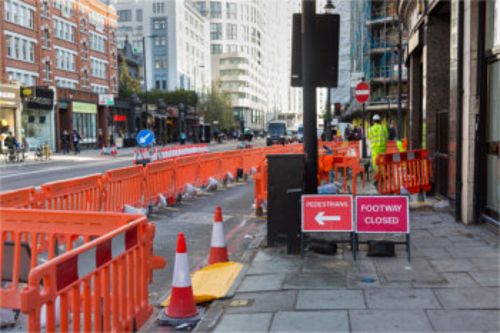
“Funding for roads is essential and we’re making the most of every penny available to us, maintaining a safe road network despite the loss of our operating grant and no long-term funding for the maintenance of our roads,” explained Glynn Barton, TfL’s director of network management.
“Schemes such as Lane Rental contribute vital extra funding, which we are carefully investing to help keep Londoners safe and to keep the capital moving.”



